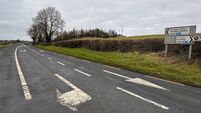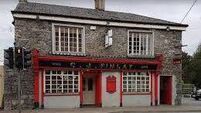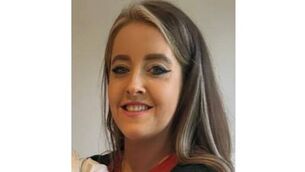Kildare based charity trip to Kenya was 'eye opener'
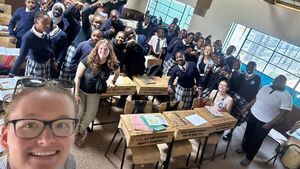
The school selfie shot, education is seen as an escape from poverty
A KILCULLEN-based charity supporting children's education in Kenya may have to pivot to health aid because of the dismantling of the USAID programme under Donald Trump.
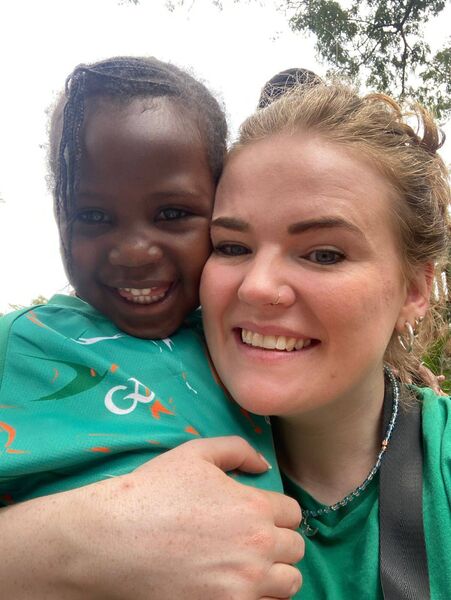
This has resulted in a resurgence of deaths in the Ngong suburb of Nairobi, where Maintain Hope has worked since it was established in 2006.
“Sick children can’t learn,” the charity’s founder, Gerry O’Donoghue, said. “Medicines that have helped keep families alive are now unaffordable.” The issue is rooted in managing HIV with retroviral drugs, previously available from clinics which distributed the medicines, provided mainly by the US.
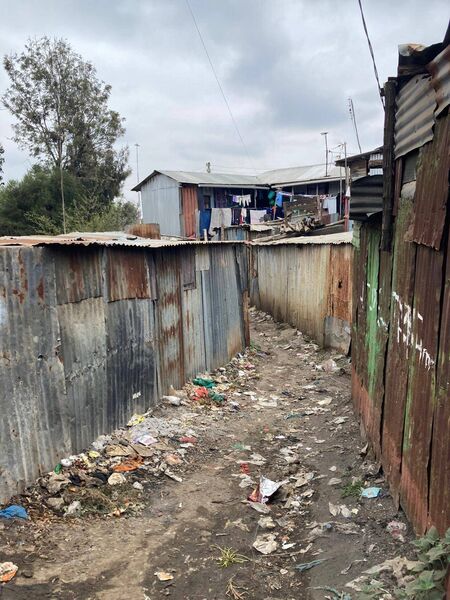
Now, whole families are getting ill, and diseases like cholera are killing people who have weakened immune systems.
Eleven Maintain Hope volunteers, from Kildare and surrounding counties, recently returned after spending two weeks on the ground in Ngong, where they provided 40 children with a summer camp while giving their parents and guardians some respite.
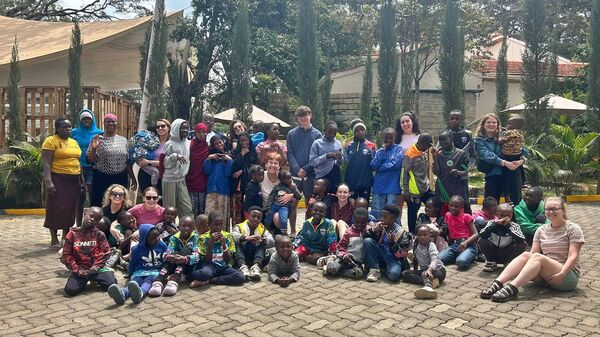
It’s the first time in ten years that the charity has sent volunteers, since changing from their original work of building structures at an Ngong orphanage to supporting families to keep their children at home and in education. The trip was an eye-opener for those who hadn’t visited Kenya before.
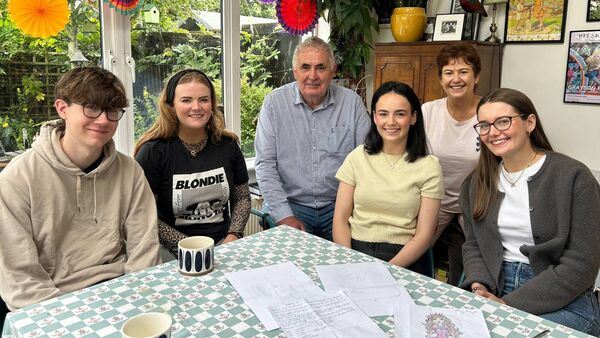
“We had planned the trip because it was clear that parents there no longer had the capacity to deal with the needs of large numbers of children,” said Gerry. “For instance, one woman, Mama Ivy, was responsible for 16 children, only five of which were hers. So she definitely needed help. We also wanted to see the feasibility of organising regular volunteer trips again. Is it practical, even justifiable, in today’s circumstances?” Esther Reddy, a director of Maintain Hope and involved with its work since the early years, wanted a first-hand view of how the community-based operation is now working.
“Gerry makes regular trips and fills us in when he returns, and we can see what is happening through photographs. But I wanted to experience that on the ground.” Shona Leslie, a teacher living in the Kilcullen area, was more affected than she had expected.
“We knew that the children were going to be poor, that they weren’t going to be in the best of circumstances,” she said.
”I think we were taken aback when we saw the situation they were actually in. But we were also surprised at how happy they were, how engaging, and how willing they were to warm up to us.” From family connections with the charity, Brona Dooley was reasonably aware of the situation.
“But on one of the first days, when we went to the slums and saw the conditions, we couldn’t figure out how it was possible for someone to look after all those kids. And how were they getting the money together for rent?” Aisling Dooley visited the original Ngong shelter, today a very quiet place with an odd atmosphere.
Aisling commented: “I realised that if we weren’t doing what we were doing, keeping them in their families and community, this is where our children would have been.” The youngest volunteer, Dan Gaffney, said it was tough to see some of the conditions.
“But it was nice to see how much the parents could do for the kids with what little they had.” He was also impressed with how older children in a group looked out for the younger ones.
The summer camp was held in the Kivulini Eco-Park hotel, which had facilities for sports, arts and crafts, swimming, and dance sessions.
“We divided the children into three groups by age, and rotated through the different play areas," said Brona.
"We’d come together for pool time. We also gathered before lunch for dancing — one volunteer works in a dance school and another does Irish dancing, and the children taught us some African dances.” Aisling was impressed with the resort accommodation.
“It was all so safe, and we knew that if a child went running, they wouldn’t get out. The staff were so good, so involved, making sure the kids were getting enough food, and sleeping OK.” Each volunteer had to raise €3,000 before travelling, and the charity was able to pay for everything at an all-in rate, which Gerry O’Donoghue had previously negotiated on one of his regular administration trips.
The children's reaction to gifts the group had brought impressed Shona. They included donations of sports kit from various Kilcullen clubs and teddy bears for the little ones.
"They were so grateful. It made me think how some of the children here at home don't realise how privileged they are."
Esther recalls the challenge for a family of eight living in a room not much bigger than a standard Irish kitchen.
“You're wondering where they all sleep, how they prepare food? And you go outside, and it's just a little bit of not even a lane, surrounded by other tin houses.
“I remember looking at a beautiful little toddler, all the older children were at school, and wondering what was ahead for him."
An underlying concern is the effect of a short period of something happy with the volunteers, who then go home, and everything returns to normal.
"It's 'helicoptering' in and then disappearing, we're very conscious of that," Esther said.
Gerry agreed, noting that the charity never now visits children in an institution, where volunteers come in for a couple of weeks and then leave, and another group of volunteers come in, in what has become a global problem of 'voluntourism'.
"Attachment disorder is one of the worst outcomes of this, and the children leave institutional care with impaired ability to form or maintain relationships."
That was why, a decade after its foundation, Maintain Hope shifted emphasis from the original children's home to successfully supporting children in their communities and education, from kindergarten to third level.
Through Gerry's visits and the work of Julius Arega, a former resident of the Ngong home and now a senior security company executive, there's a continuity of relationship with those they support.
Running the summer camp was an experiment, both for the children and for the volunteers themselves.
"We were just there to support and to help and to give their mamas a respite and also to bring some joy and fun into their lives," said Esther.
"They gained confidence during the week, and we'd hope that in the future, they'll be able to draw on that confidence and that little bit of new resilience."
Aisling feels the experience will encourage the volunteers to continue fundraising for the charity.
Shona says that seeing how other people are and how they get on with their lives makes her appreciate all that she has.
"Sometimes we all lose touch with that. I'm still living at home, but in a big house, not with 16 kids. So, it does make you grateful for what we have."
Brona noted that seeing children living in a less advantaged environment is grounding in a wars-torn world.
"If anything like that happened to them and the fear they would live with, it helps us realise we are so privileged where we are. And we do take that for granted."
Standout moments included a talent show towards the end, when everybody got up dancing.
"The teenagers, who had been reluctant at the start, joined in," Shona recalled. "Then all the mamas, and the small ones, and for a moment it was ‘Oh my God, how far they have come in just a few days.’"
Another eye-opener was the children's attitude to learning.
"They see it as their only escape out of poverty, and it's instilled in them at home," said Gerry. "So, they value school-going, and parents will make enormous sacrifices in order to pay school fees."
Maintain Hope has been helping keep that going. But now, at least for a time, education may have to take a back seat.
"On a day-to-day basis, we get urgent requests for somebody who is ill, maybe in hospital. We only have a certain number of resources, so we're trying to decide whether to concentrate on health and welfare, and hope for the best for education. It's horrendous."
